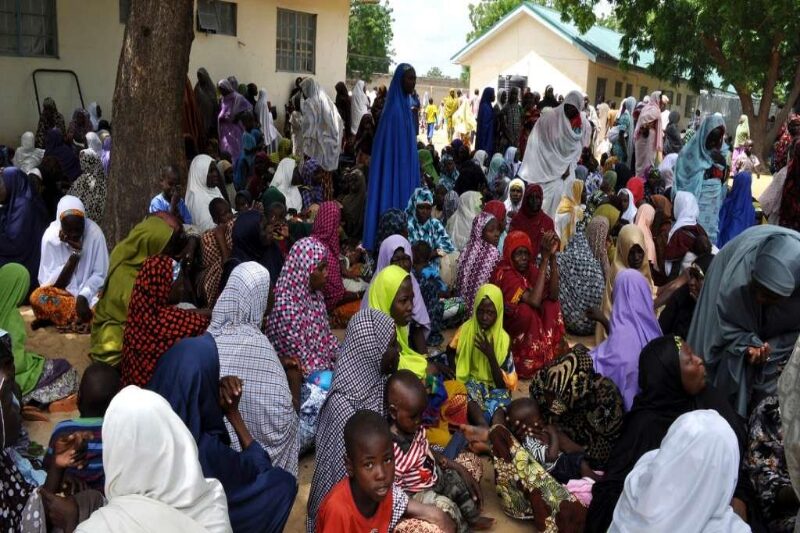To commemorate International Women’s Day on Wednesday, March 8, Falmata Zulum, the wife of Borno State governor Babagana Umara Zulum, handed out more than 400 humanitarian aid packages to women in need in the state’s capital, Maiduguri.
Speaking at the event, Falmata Umar Lawan, the director the state’s ministry of women affairs and social development, told beneficiaries that the purpose of distributing relief materials to vulnerable women, including internally displaced women and the widows of men who fought against the insurgency, was to help make their lives a little easier.
“The United Nations has set aside March 8 to commemorate women globally. That’s why the women of Borno State have joined women in the rest of the world in celebrating the day with a special focus on peace-building, the inclusion of women in government, as well as the empowerment of women in all sectors.
“Because of the peculiar situation of insurgency that we have here in Borno State, the wife of the Borno State governor, Falmata Babagana Umara Zulum, has approved the distribution of humanitarian aid packages to more than 400 vulnerable poor women and victims of the insurgency.
“The relief materials that will be distributed to these women include grinding machines, kitchen wares, such as frypans and flasks, hand-cranked pasta machines, flour and other food. We will continue to provide this kind of support and assistance to vulnerable women to ensure that poverty is drastically reduced. This will help to bring about peace and development not only in Borno State but also in the country as a whole,” Lawan said.
“When women become self-reliant, the whole of humanity enjoys the benefits. And so, it is not only the government but also the responsibility of all to support women whether politically, socially, financially or economically because women are the backbone of peace-building, societal development and humanity in general.”
Ya Goiram Modu Alkalli, an elderly woman and a beneficiary, told RNI that she appreciated the efforts made by the government to support vulnerable women.
“I appreciated everything we received but what are particularly useful are the pasta-making and grinding machines – and the kitchen utensils. With these, I and other women can become self-reliant. All these items can be used to start a business and earn a living. We will be able to support our families.”
Alkalli said she moved to Maiduguri when her husband and some of her relatives were killed in their hometown in the Bama Local Government Area.
“We were chased away by Boko Haram [Jamā’at Ahl as-Sunnah lid-Da’way Wa’l-Jihād – JAS]
insurgents. Before that, we were kept captured by Boko Haram in our hometown for almost eight months.
“We had to leave everything. We arrived in Maiduguri with just the clothes we were wearing. I no longer had a husband and my children did not have a father. It was extremely alarming. I still struggle to get food for my children. But, with this kind of aid, I might be able to start my own business. This kind of humanitarian aid helps us to become more independent. I feel empowered for the first time in years.”
Inna Goni Abdullahi said: I’m a victim of the Boko Haram insurgency. At the peak of the insurgency many of my family members were killed. We had to leave our hometown and life was just so miserable. We have had to face so many hardships and challenges. I have struggled for years now to feed my children and other family members..
“We are very grateful to the government for supporting us with this kind of humanitarian aid. The hand-cranked pasta and grinding machines will certainly cushion our hardships and challenges.”
• International Women’s Day is celebrated annually on March 8. This year’s them was “DigitALL: Innovation and technology for gender equality”, which highlighted the role of innovative technology in promoting gender equality and meeting the health and developmental needs of women and girls.
SHETTIMA LAWAN MONGUNO






